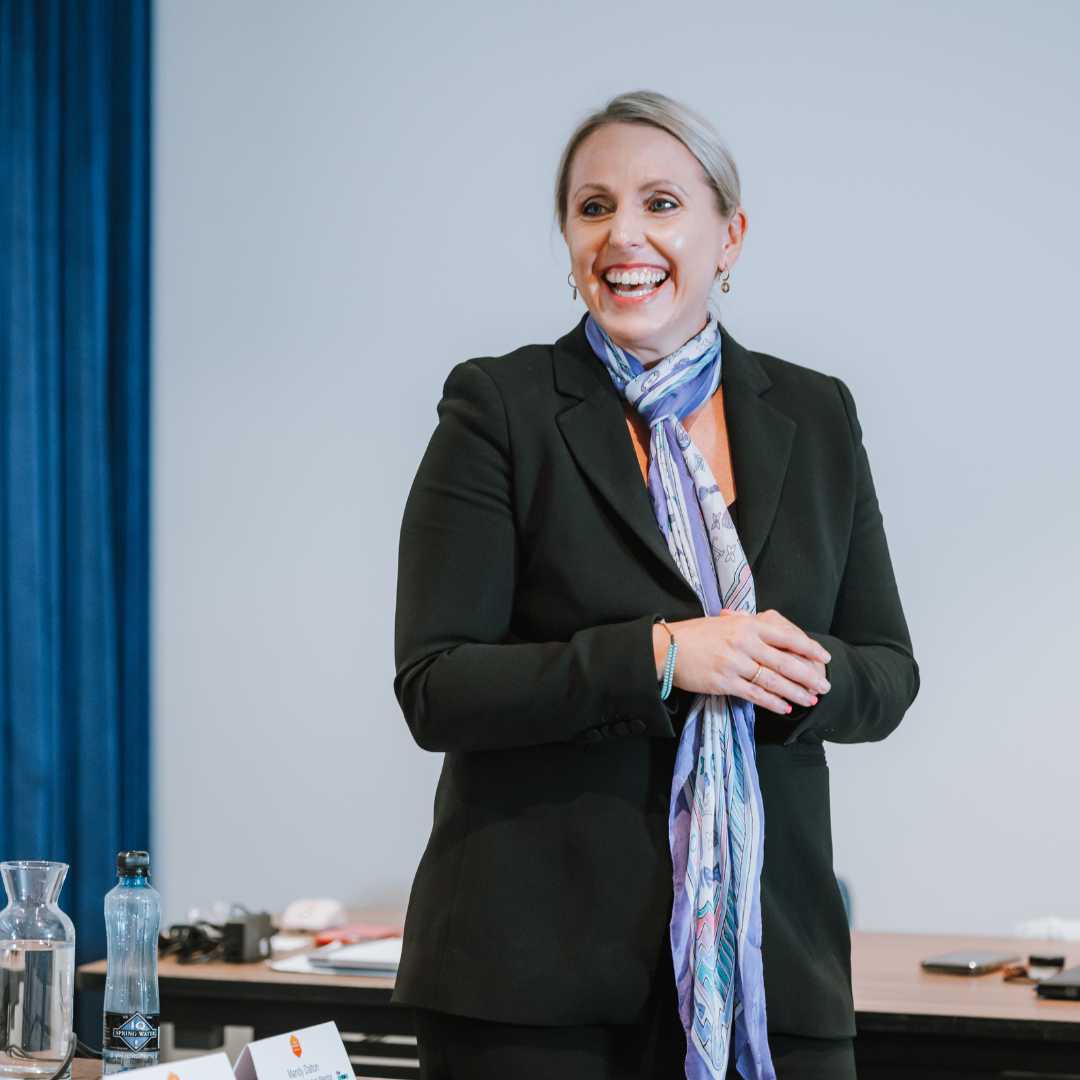How to reset and get back on track
By Amanda Vinci
You know that feeling you get at the start of any year, where you’re excited to reset and get back on track?
Where the minute the clock strikes midnight to the 1st of January and for some reason it feels like you have a fresh start. All of a sudden, you feel a sense of excitement about the year ahead, you start planning your goals and you have big, bold ideas of how you’re going to achieve it.
And then life takes over.
Everything you planned, both personally and professionally slowly starts to feel like a distant memory and before you know it you’re half way through the year with nothing to show for it.
I get it. This happen to the best of us and for whatever reason it seems to be very common in the land of Administrative Support.
Executive Assistants and Administrators seem to be the worst this. There is something in their DNA that pulls to put everyone elses goals and aspirations ahead of their own.
Another challenge and quite often the main reason we give up on our goals is if you’re making progress and we hit a roadblock that we didn’t see coming, we may feel defeated — and that makes it tough to get back on track.
If any of this is resonating for you, know that you’re not alone. A staggering 92 percent of people that set New Year’s goals never actually achieve them. That’s according to research by the University of Scranton.
So how do the remaining 8 percent do it?
If you’re serious about goal setting, here’s what the high performing EAs know about how to reset and get on track that you may not:
1. Set goals that are specific and challenging (but not too hard).
Research by Edwin Locke found that when people followed these two principles — setting specific and challenging goals — it led to higher performance 90 percent of the time.
Basically, the more specific and challenging your goals, the higher your motivation toward hitting them. That explains why easy or vague goals rarely get met.
Here’s an example: If your goal between now and the end of the year is to, say, become more strategic, that may be challenging, but it’s not specific enough.
Eliminate vagueness and make it more achievable by stating it this way: During the month of August, I will spend time understanding more about the business vision and why we do what we do. I will also prepare and ask questions every time I attend a meeting so I can fill any knowledge gaps.
When you have that much clarity around your goal, your chances of hitting the mark increase dramatically.
On the flip side, goals that are too difficult to hit don’t get met either. While it’s important to challenge yourself, nobody completes a goal when he/she is overwhelmed by facing a mountain they can’t climb.
If you find yourself with such a scenario, break down your BHAG (Big Hairy Audacious Goal) into smaller bites you can actually chew. Use the same process of defining specific and challenging marks to hit when mapping out the smaller goals that will lead you to your final destination.
Questions to ask yourself:
How challenging is this goal for me?
Am I excited about reaching this goal?
Is it too easy?
If so, can I make it harder without it overwhelming me?
Is it too complex?
If so, how can I break it into smaller parts so I don’t get overwhelmed?
2. Be passionate about your goals and committed to the end.
Simply put, the 8 percent of goal-setters who succeed want it, and badly. So, ask yourself:
What is my level of commitment?
Are you totally sold out for reaching your goal?
When obstacles pop up along the way, will you toss in the towel?
High Performing EAs have an internal compass that keeps them locked in until they reach the top of the mountain. It’s a belief system of “do whatever it takes” that is intrinsically motivated at their core.
Take a quick moment and check in with yourself. If at the core of your being you don’t really have the desire or passion to pursue the goal, it doesn’t matter how specific, challenging, or sexy your goal may sound — you’re not going to reach it.
Questions to ask yourself:
How badly do I want it?
Who’s holding me accountable to the end?
Is my heart truly in it from the start?
What’s life going to look like once I complete the goal?
In the end, will it be worth it?
Use a feedback cycle to track progress.
You’re human — you’re bound to fall back into old habits, procrastinate, or lose motivation. To counter these things, your chances of hitting a specific goal increase greatly if you’re getting frequent feedback that will keep you on track and help you to adjust accordingly.
That’s why so many high performing EAs have a coach. People who are dead serious about meeting their goals benefit tremendously from the feedback and accountability system afforded in a coaching process.
3. Lean on trusted advisors.
Seeking out expert guidance and advice makes a big impact on achieving your goals. That’s why successful Executive Assistants are no lone rangers. They surround themselves with mentors and other high performing Executive Assistants who will support them on their journey.
Think about three or four people you can recruit that are further down the path. Make it a monthly habit to share your goals in the context of a mastermind meeting where you can glean wisdom, insight, and advice to steer you toward your goals and hold each other accountable.
4. Avoid multitasking.
What I’m about to say here is going to be controversial, I know, but the most successful Executive Assistants are very patient and live by the motto “one step at a time.” They also avoid juggling many things. You think multitasking is still a good strategy for success? Research says it’s a myth and can be damaging to our brains. You end up splitting your focus over many tasks, losing focus, lowering the quality of your work and taking longer to hit your goals.
High Performing EAs are smart enough to work on several smaller chunks to complete a big goal. But they do it by knocking one down then moving on to the next one.
As you break the goal down into smaller chunks, each of those chunks should have their own deadlines. I like to call these “now deadlines”:
Even if your goal is something that will take a long time to reach — like saving enough money for retirement — you’re more likely to take action if you have time limits in the present. Create target dates to reach your objectives. Find something you can do this week to begin taking some type of action now. For example, decide ‘I will create a budget by Thursday,’ or ‘I will lose one kilogram in seven days.’
5. Bring it home.
While you may think these successful 8 percenters are born predisposed to these talents, research says that successful Executive Assistants achieve their goals not simply because of who they are, but more often because of what they do.
Aristotle nailed it more than 2000 years ago when he said, “We are what we repeatedly do.” By practicing these skills, expect to dramatically improve your rate of finishing strong.
It’s time to get planning. We are halfway through the year and you have plenty of time to still achieve some remarkable things by the end of the year if you take the time now to reset and refocus.
If you feel like you need a little nudge to get you moving in the right direction, I’m hosting a Free Lunch and Learn for our Growth Hub Members on Goal setting later this month, see below for more details.
Also here to help is this Master your Mid-year Reset Manual full of templates to get your goals on track fast.
Happy planning!






